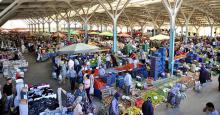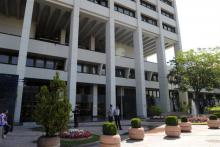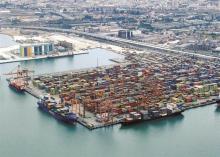All News on Economics in Turkey
Political climate obstructing growth
The onset of spring has seen a rally in emerging economies like Turkey, but the country's political risks are likely to rule out further growthThe European Central Bank's negative step on interest rates, as well as the U.S. Fed's postponement of its rate operation, look as if they have created a doping effect on "emerging economies," which also includes Turkey.
25 percent of foreign investments in real estate
The most desired aspect of foreign capital investments is foreign direct investment, but in Turkey's case, this item has a share of just one-fourth of the total inflow, almost equal to real estate purchasesForeign direct investments to Turkey, particularly after 2003, increased visibly compared to previous years.
Flow of Illegal Migrants at Bulgaria's Lesovo Increases - bTV
Bulgarian authorities have been faced with increased flow of illegal migrants across the country's border with Turkey in recent days, bTV broadcaster reported on Tuesday.
Several groups of migrants have been detained by border police while trying to illegally cross into Bulgaria at Lesovo checkpoint, the TV channel said citing prosec?ting authorities in the nearby town of Elhovo.
Net error and omission of $42 billion in 14 years - Is this unregistered capital inflow or black money?
There has been a dramatic rise in the amount of unregistered money inflow to Turkey, creating some question marks about the origins of this moneyIn the first nine months of the year 2015, Turkey's chronic illness or current account deficit was $25 billion. This deficit was $46 billion the entire year of 2014. For the whole year 2015, it looks as if it will be $42 billion.
Turkey posts current account surplus
Turkey ran a current account surplus of $95 million in September, contrary to an expected $27 million deficit, marking the second time the country recorded a surplus in the balance of payments since 2009.
The 12-month rolling current account deficit stood at $40.6 billion, or about 5 percent of the GDP.















